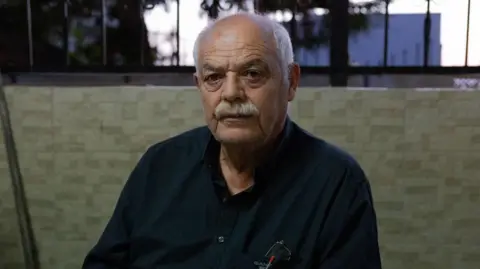Introduction
The devastating consequences of the escalating conflict between Israel and Iran took a personal toll on Kasem Abu al-Hija, a 67-year-old resident of Tamra, northern Israel. Iran missile strike Israel An Iranian missile strike killed four members of his family, exposing not only the tragedy of war but also the deep-rooted inequalities faced by Arab citizens of Israel. The incident has ignited widespread debate over safety disparities and systemic discrimination.
Deadly Strike in Tamra
On Saturday, an Iranian ballistic missile struck a residential home in Tamra, an Arab-majority town located approximately 10 km from Haifa. The explosion killed Kasem’s daughter, Manar Khatib (45), his two granddaughters, Shada (20) and Hala (13), and their aunt, Manal Khatib (41). Witnesses described scenes of utter devastation with debris, children’s toys, and body parts scattered across the street.
Though the family had sought refuge in reinforced safe rooms inside their home, the missile hit directly, collapsing the concrete structure. The tragedy underscores not just the horrors of war but the uneven distribution of protective infrastructure across Israel’s population.
Outrage Over Viral Video Mocking Arab Victims
Adding to the family’s grief, a video surfaced online showing ultranationalist Israeli Jews singing anti-Arab chants as the missiles descended. The group can be heard shouting, “May your village burn,” while celebrating the strike. The video has been widely condemned, with Israeli President Isaac Herzog calling it “appalling and disgraceful.”
Shelter Inequality Between Arab and Jewish Communities
Tamra, like many Arab-majority communities in Israel, lacks adequate public bomb shelters. With 38,000 residents, the town has virtually no public shelters, while nearby Jewish-majority Karmiel (population 55,000) has 126 shelters. Approximately 40% of homes in Tamra have private safe rooms, leaving many residents forced to seek shelter at neighbors’ homes during attacks Iran missile strike Israel.
According to a 2018 report by Israel’s State Comptroller, nearly half of residents in non-Jewish communities lack access to proper shelters, compared to a quarter across Israel as a whole. This disparity reflects longstanding state underfunding of Arab local authorities across areas like emergency preparedness, education, and infrastructure.
Systemic Discrimination and Neglect
Arab citizens, who prefer to call themselves Palestinian citizens of Israel, make up 20% of the country’s population. While they have equal rights under the law, many feel like second-class citizens. Lital Piller of the Israel Democracy Institute states that where shelters do exist, “they are few, poorly maintained, and often not suited for prolonged stays.”
Following the 1991 Gulf War, new building regulations mandated safe rooms in all new Israeli residential buildings. However, due to restrictive planning laws and a legacy of unregulated construction in Arab towns, many homes were built without these protections Iran missile strike Israel.
Public Anger and Growing Divisions
“We don’t get the basic needs,” said Adel Khatib, a Tamra municipal official, emphasizing the lack of community centers, cultural buildings, and essential infrastructure. According to Israel’s official statistics, 42.4% of Arab citizens lived below the poverty line in 2023—more than double the national average.
A Hebrew University survey revealed that 82.7% of Jewish Israelis support attacks on Iran, while 67.9% of Arab Israelis oppose them, with many reporting fear and despair over the escalating conflict. Ilan Amit from the Arab-Jewish Center for Empowerment adds, “The gaps are enormous in education, employment, and now even in life-saving shelters.”
Calls for Justice and Peace
At a vigil before the funeral, dozens gathered to mourn quietly. Kasem expressed both grief and hope, saying: “The bombs do not choose between Arabs or Jews. We must end this war. We must end it now.” His words capture the growing call for peace amidst rising internal divisions in Israeli society.
Conclusion
The tragedy in Tamra not only reflects the immediate horrors of war but also shines a light on Israel’s long-standing internal inequalities. As both Arab and Jewish citizens continue to live under the shadow of regional conflict, many are demanding not just security from external threats but justice and equality at home.
Recommended Read: Latest on Israel-Iran Conflict and Middle East Tensions


